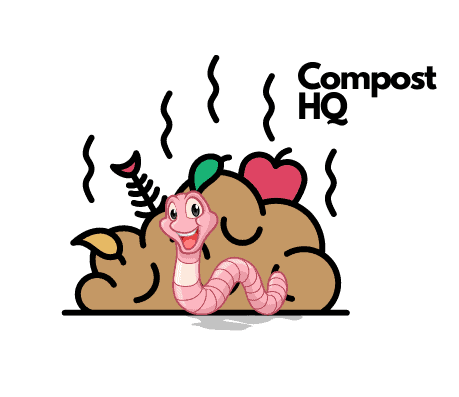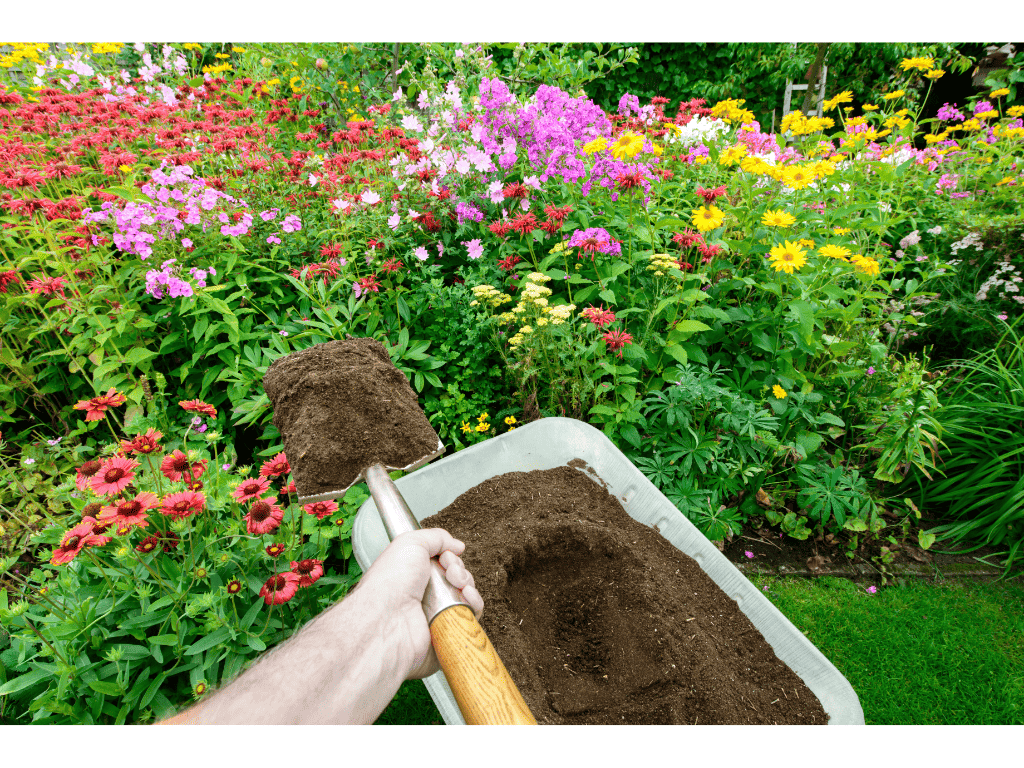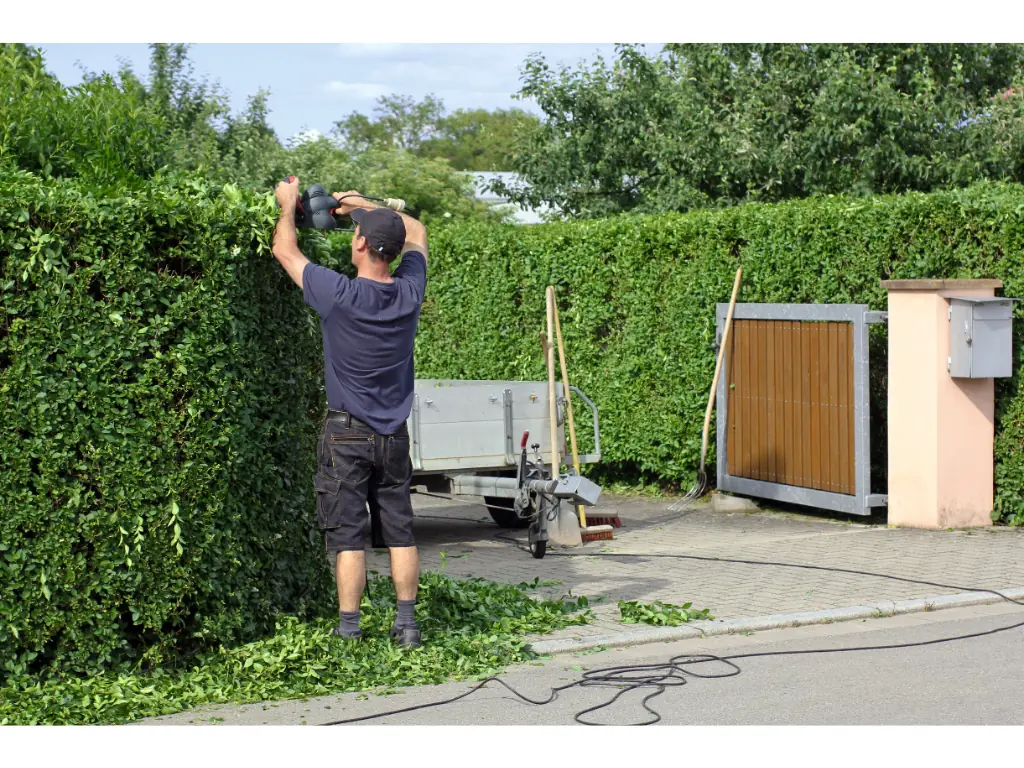Introduction
When it comes to composting, there often seem to be a lot of dos and don’ts, and if you’re wondering about the “don’ts,” you’re probably wondering about corn cobs, since they are tough and woody.
So, can you compost corn kernels? Don’t they last forever! You can certainly compost corn cobs and corn kernels when you want to.
You can compost any part of a corn on the cob, in fact, including the husks, or the whole thing if you want to for any reason.
However, be aware that the cob will last quite a long time, and you may find it hanging around for months on end.
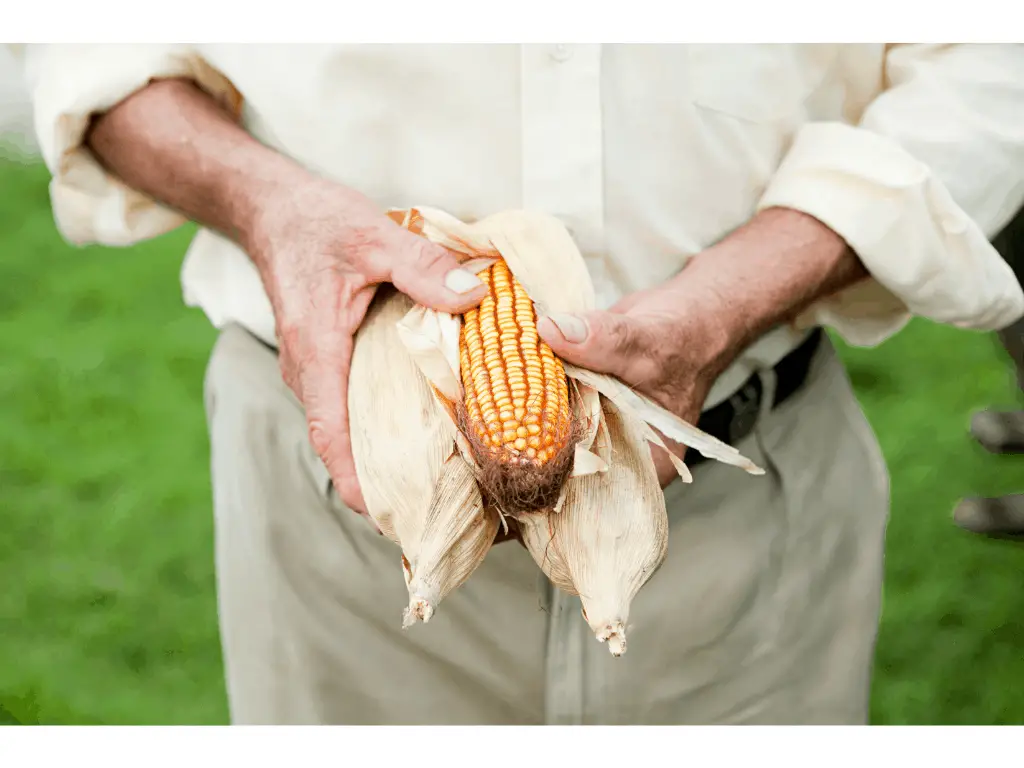
How Long Does A Corn Cob Take To Break Down?
Corn cobs can take months or even years to disappear in your compost bin; they are extremely tough and dry additions, and they are also quite large, so they won’t decompose quickly.
In general, things that break down quickly in a compost bin are soft and often contain quite a bit of moisture.
Tougher, more structural pieces like corn cobs take a lot longer, because moisture cannot easily penetrate their densely packed tissues, and it is harder for worms and bacteria to break them down.
They also can’t be spread out in the compost very easily, and any large blocks of a material will take longer to break down in general – even if they are softer organic waste.
Exactly how fast corn cobs will disappear into your compost does depend a lot on the conditions in your bin.
If your bin is composting at a high temperature and has a good balance of carbon and nitrogen, so is working at maximum efficiency, cobs will disappear much more quickly than in a cold, slow to activate bin.
Remember, however, that even if your compost bin is not operating very fast, you can always throw corn cobs back in if you use the compost and they remain intact inside it.
Simply sift them out as you harvest the compost and throw them back into your new pile; they will eventually disappear.
How Can I Help Corn Cobs To Break Down Quickly?
There are a few things you can do to speed up the process and make corn cobs disappear faster, so let’s explore those.
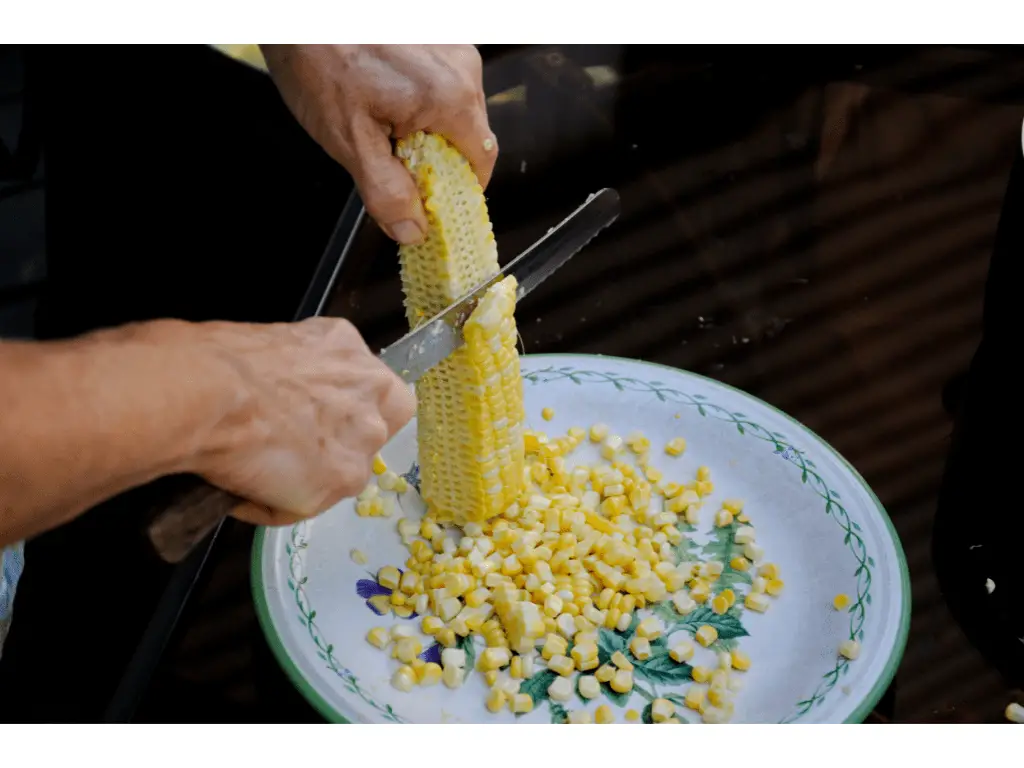
Cut Up The Cobs
Firstly, cutting up the corn cobs will help a lot. Make sure you do this carefully so you don’t accidentally injure yourself while doing it, as they are very tough and difficult to cut, even after they have been boiled.
You don’t have to cut them too small, but the smaller you go, the faster they will break down, because they will soak up water more easily, and worms and bacteria will be able to get to them.
Chopping corn cobs up into little pieces is the best way to make them disappear quickly if you want them to turn into usable compost fast.
Keep The Bin Efficient
The other thing that you can do is ensure your bin is operating at maximum efficiency. For this, you need to balance your carbon and nitrogen input, and keep the bin nice and hot if possible by turning it regularly.
To keep it balanced, you need to be adding more carbon than nitrogen, and the great news is that corn cobs are rich in carbon, and will help to maintain the compost’s balance. You can also add straw, cardboard, nutshells, and eggshells for carbon boosts.
However, you do need to add nitrogen too. Carbon-rich ingredients tend to be very dry, and a dry bin won’t compost properly.
Most food waste is nitrogen-rich, as are grass clippings and any greenery from your garden.You’ll know if your bin is unbalanced from the look of it.
A bin that is too rich in nitrogen will be wet and slimy, and will often smell bad. A bin that is too rich in carbon will look dry and inactive, not changing much week after week.
You can restore the balance very easily by adding one kind of ingredient or the other and stirring the bin well.
This will get it balanced and active again; keep an eye on it and keep adding whichever it is lacking in until it is normal once more.
Secondly, you should keep turning your compost heap regularly. This redistributes material and actives the bacteria that do most of the work in breaking down organic waste.
These generate heat, which will further break the corn cobs down.Regular turning, small pieces, and a well balanced compost heap are the keys to making sure your corn cobs disappear nice and quickly.
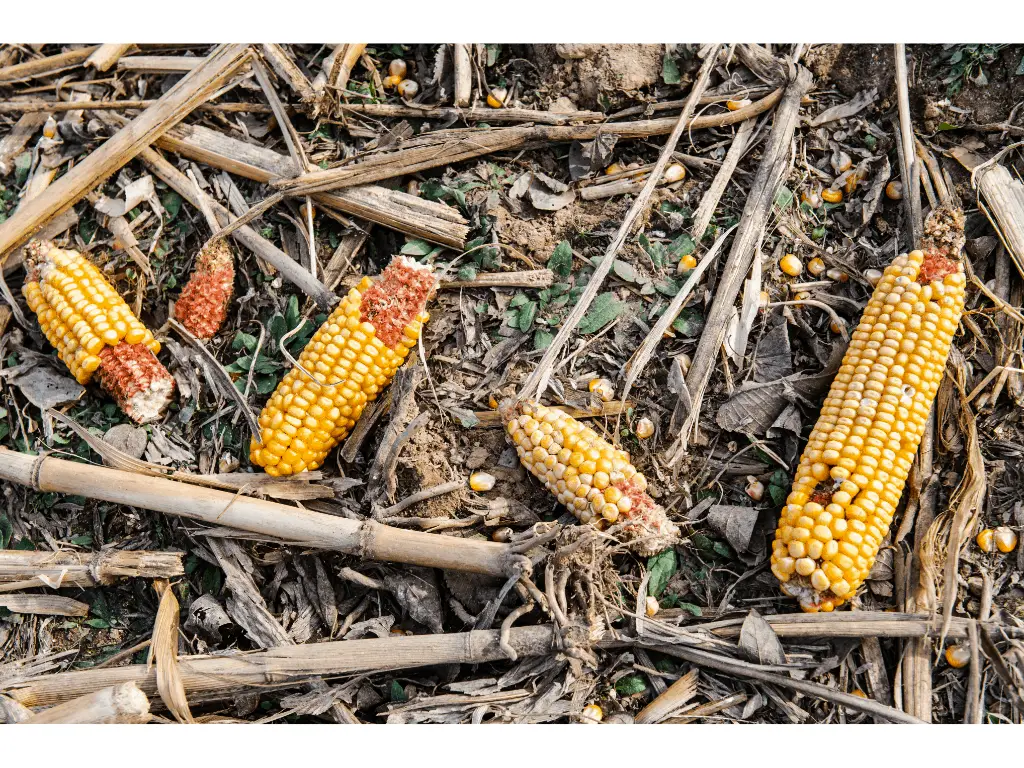
How Long Do Corn Kernels Take To Break Down?
Corn kernels are soft and squishy, and should break down fast in the compost bin.
They have a lot of moisture in them already, and this will be absorbed and squashed into the compost heap, leaving only the drier, tougher parts – which should also decompose quickly.
Corn kernels don’t need any processing before you add them to the compost heap. You can just toss them on whole.
Even if they are still on a cob, they themselves will disappear quickly, although you might want to cut the cob up to help it break down.
Corn kernels should probably vanish within a few weeks in a reasonably active compost bin. They are small, squishy, and perfect for quick composting.
How Can I Help Corn Kernels Break Down Quickly?
You don’t really need to do anything to help corn kernels break down fast, as they don’t have much structure and should just turn into nice rich compost quickly.
The only things you may wish to do is stir your bin frequently and add some carbon-rich material, especially if you have added a lot of corn kernels, since these may be wet and could make your bin too damp.
Include some shredded newspaper or cardboard if things are looking soggy, and remember that soggy bins won’t operate well.
The water suffocates the bacteria needed to break down organic waste, and it gets replaced by anaerobic bacteria, which release methane and other unpleasant gasses.
Keep your bin operating well, and the corn kernels will be gone before you know it. You don’t need to do anything special for these; just add them, and they will soon be rich, fertile compost for your garden.
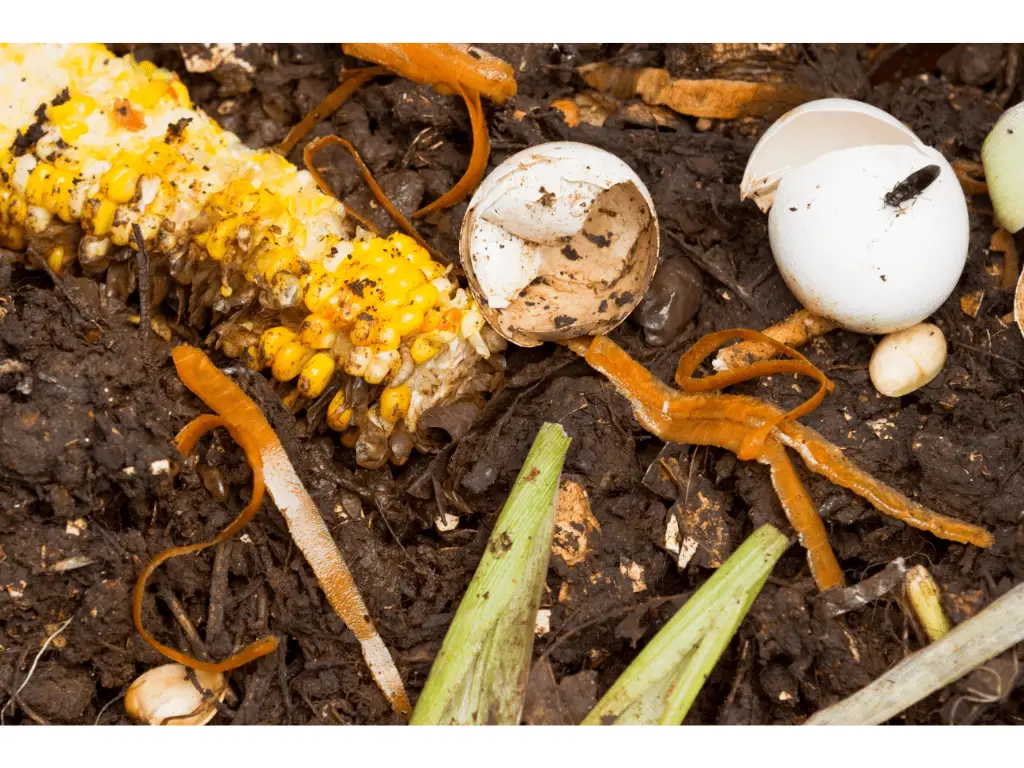
Is Composting Corn Good?
Yes, composting corn is good for a number of reasons.
Rich Soil
As with any organic waste that you add, they will bring richness and nutrients to your compost heap.
Both cobs and kernels contain valuable nutrients that will be broken down into the compost, enriching the end result.
Good compost benefits from having a whole range of different things added to it, as this ensures a great mix of nutrients is included.
The more variety you can bring to your compost bin, the richer and healthier the end product is likely to be. Add pretty much anything from your kitchen and know you’re making your compost better!
Structure
Although this doesn’t apply to corn kernels, adding cobs to the compost is also great for providing additional structure.
Because the chunks are so tough, they will help to keep your compost aerated and prevent it from compacting.
You need plenty of air in your compost, as this makes the bacteria that help it to operate more active and encourages better composting.
Woody materials like twigs and branches are great, but so are corn cobs, which will keep gaps open in the middle of your compost heap and ensure that it stays aerated.
Obviously, if you cut your corn cobs up small, this effect will be decreased to a degree, but in general, corn cobs are a great way to keep your bin full of air and operating at a good, hot temperature by activating the bacteria.
Keeping Food Out Of Landfill Sites
Perhaps one of the key reasons for composting, putting your corn in the compost bin prevents it from going to a landfill site, and this is a very environmentally-friendly option that most people who compost are invested in.
Organic waste in landfill sites is a big problem, because it cannot decompose naturally. There is no oxygen to help it break down the way it would in nature, and so anaerobic bacteria take over, and these release greenhouse gasses such as methane.
Obviously, this is not good for the planet, but it is easy to avoid by putting food in your compost bin instead of in your garbage bin.
Both corn cobs and corn kernels are fine to toss into the compost, so throw them in there and watch them quickly become rich compost to use in your garden.
Conclusion
Corn cobs and corn kernels can both be composted easily, and will prove a valuable addition to your compost bin.
Chop corn cobs up a bit before adding them to speed up the decomposition process, or toss them in whole and just throw them back if you’re ready to use the compost before they have finished decomposing.
